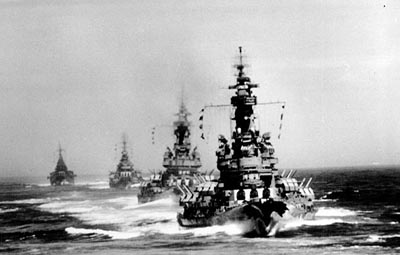"15, 30, 45. I wish I made money the way you did, Mr. Barret."
The teller slid the wads across the counter to Ulrich Barret, who took two of them and pushed the third one back.
"There's this month's payment."
"That's the last you owe on the car! You can consider yourself debt-free." The teller took out a sheet of paper with a lot of letters and stamps on it and stamped it again. It looked indistinguishable from the others.
"Would you like to buy some patriotic bonds, serve our great nation?"
"No thanks, I'll leave the fighting to someone who cares."
With that, Ulrich Barret picked up his money and turned heel. In a flash he was outside. A street down, a military band churned out march music to the delight and adolations of a large crowd. Soldiers marched down the street in step, rifles with bayonets pointing high into the air. The sun glistened high in the sky, warming the city even as it made its way into the Alps. The smell of ocean salt was present in the air.
Ulrich Barret was a man of wealth and status, being one of the many gun barons operating in France. New money, actually, capitalizing on the swiftly advancing technology of destruction. Yes, all over Europe rifles and cannons of Barret's design shot at those holding the rifles and operating the cannons. Some might have called him a dog; others, a genius. Either way, he sure did love this free enterprise thing. And by golly, did he take advantage of it.
“By George, is that Ulrich Barret I see? Ulrich, m'boy! Let me get a good look at you.”
Barret turned to face the heavy British accent calling him out. With a smile and a wave, Barret acknowledged his existence, and soon the man with the prodigious mustache was by his side, shaking his hand furiously.
“Nigel, you know it's probably not wise for you to be in France at this time.”
“Nonsense! The English are doing next to nothing in this war. Word has it that it'll be as cold a front in England as ever.”
“You better hope that remains true,” Barret remarked, “Or else you may find yourself at the unhealthy end of an imperial bayonet.”
“Well surely, you wouldn't rat me out.”
No, indeed, Barret probably wouldn't. In fact, Barret was relatively sure that as far south as Marseilles the Imperials wouldn't even look at Nigel Crampton twice. Not even the Italians were in any real danger. Indeed, the government and army were stocked with men of principle – civilians are not acceptable targets.
“Come on, let me treat you to dinner,” Barret said placidly.
At the curb, Barret's very fancy, very French Model 67 stood proudly on four broad wheels supporting a long, new design of car, a far cry from the boxy Russian models which anyone could afford. The 67, though, was orders of magnitude more expensive. At the same time, it was by a large order more efficient; better petrol mileage, faster high speeds, and a smoother suspension were only a few of its perks. French engineering at its finest.
“Well, Nigel, I hear that there's a very good German place by the seaside, best sausage in the city. What do you think?”
“German food! You French are cosmopolitan if nothing else. That sounds fine. Is it expensive?”
Barret rolled his eyes. Of course it was expensive, it wasn't worth going to if it wasn't.
“Driver, take us to Hofbrauhaus Marseilles.”
“Oui, monsieur,” replied the driver as the car pulled away from the curb and made its way down the road.
“You know, Ulrich,” Crampton began after a few moments, “I've also heard that there are elements of the French management that would just as soon see you out of business.”
“Is that so?” asked a very bemused Barret.
“Aye, the charges are many and varied. Selling arms to enemy combatants, skimping on taxes, being a blatantly unpatriotic snob.”
Barret snorted. He was French, perhaps moreso maybe than the powers that be.
“They say your kind is dying out,” Crampton finished soberly, “That arms dealers' freedom is slowly being etched away.”
“Not in my country,” Barret started fiercely, but then fell quiet. There were some disturbing things happening in France these days.
“Have you heard the news from the Italian front?”
“Oh, the seizing of the Adriatic?” Barret said with a certain degree of unconcerned aloofness, “It won't last. The Italians will be smashed like eggs.” Barret pounded his right fist into his palm to emphasize the point.
“You're probably right. They can't fight for beans.” Crampton chuckled. “Then again,” he went on, “What difference does it make to you? As long as both sides buy guns.”
“Well there's vested interest, and then there's logic,” Barret said with a sardonic tone, “The French can't lose a war. It goes against our fibre.”
-*-*-*-*-*-*-*-*-*-*-*-*-*-*-*-*-*-*-*-*-*-*-*-*-*-*-*-*-
“God damnit! Can't you drive any faster, Lou?”
A rhombus lurched its way into the path, the thick canopy casting a shadow over it. Boom! The tank exploded as an artillery gun tore into it.
“#@%&! That's the third one today!”
Down the long, straight path, guarded on either side by extremely dense forest, two artillery guns, adjusted to fire laterally, and a machine gun wedged between them defended the way. Sandbags with sand spilling out and splintered barbed wire surrounded them. The Imperialists in their dark tin helmets stood stolidly as they had done since 8 a.m. It was now close to evening. Every tank, every squad that came their way was reduced to nothing. And yet, this passage had to be taken, or else Bordeaux could never be seized completely.
The attention of the platoon was drawn away as the loud barking noise of an armored car came onto the scene. Turning around out of another forest path, the car was barrelling towards them. It suddenly turned as it approached and must have slammed on the breaks, for it stopped moving sideways and went up on two wheels, threatening to tip over. Balance won the day, however, as the car settled down again on all fours. A hatch in the top popped open and a very dazed-looking Frenchmen came out.
“You drive like a goddamn drunk,” shouted the sergeant, “What the hell was that? We don't have cars to just tip over out here.”
“Sorry, sir,” said the car commander, and quickly changed the subject, “We have the supplies.”
“Do you have a mortar?” the sergeant inquired hopefully.
“No, no mortars. Why do you want a mortar? If you wanted a mortar you should've requisitioned one.”
All the soldiers on duty looked away. The sergeant began going red, but not in embarrassment, but in rage.
“I have requisitioned a mortar not once, not twice, but FIFTEEN GODDAMN TIMES since yesterday,” the sergeant practically screamed, “How did you bureaucratic idiots bungle it up fifteen goddamn times?!”
The commander went red too, and tried to stammer an answer, “W-well, if you want a mortar I'll add it to your requisition form and you should get one with the next shipment.”
“I doubt that,” the sergeant responded sourly and spat on the ground. He turned away and jerked his arm towards the car. Immediately six men sprang up and began unloading the supplies.
“François. Where's François?” shouted the sergeant suddenly.
“Right here, sir!” responded François de La Rocque, his arm jerked up high in salute.
“François, tell me something. Why do you suppose it is that high command can't do anything right?”
La Rocque opened his mouth, and then shut it again. This wasn't the first time a higher up asked him a rhetorical question. “I don't know, sir,” he said, finally.
“Always remember, boy, you can't depend on others to succeed.” said the sergeant soberly, “Now tell that tank commander that I have another plan. We can't rely on the mortar.”
“No, sir.”
“Bon Petain.”
“Bon Petain.”



 .
.



